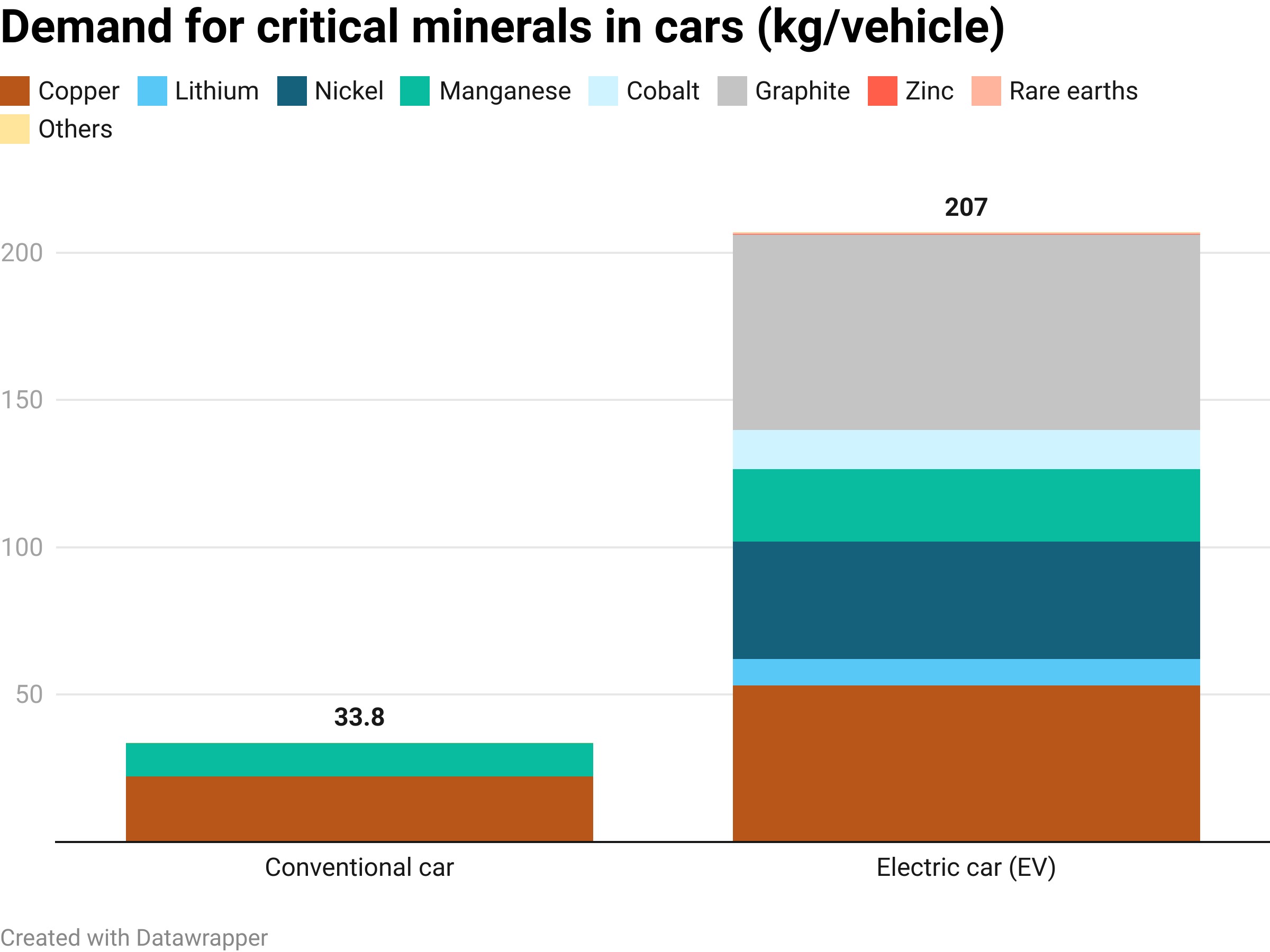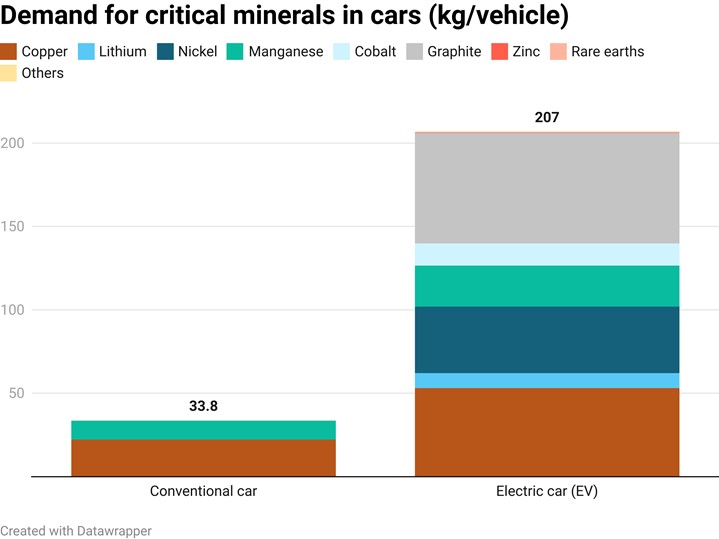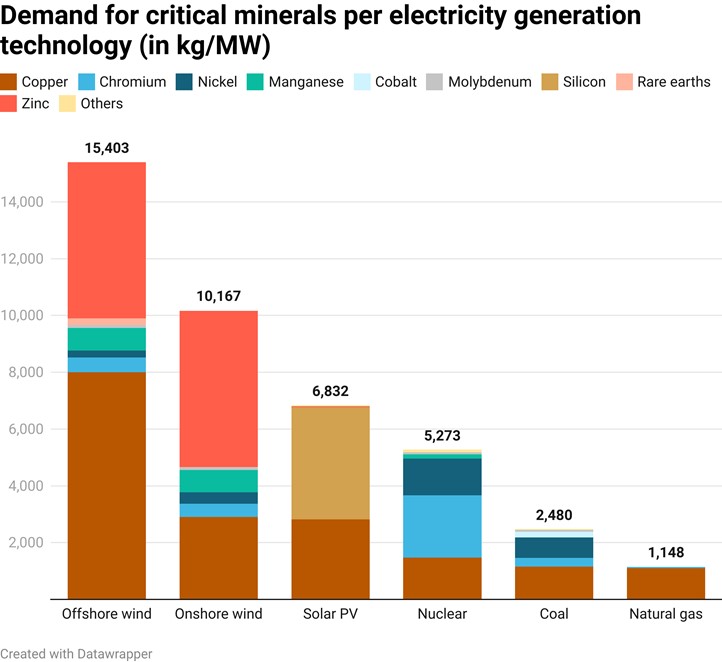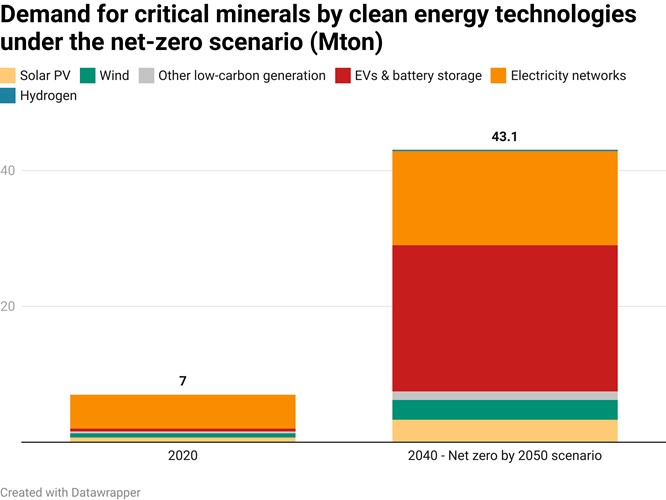Toon has a Master’s Degree in Civil Engineering (major in Energy) from the KU Leuven. He completed a 6 month internship as Derivates Analist. He work as a Junior Climate Consultant for Econopolis Climate and works on advisory projects related to climate & energy. Toon is also founder of Stroomloop, a unique trailrunning experience.
The Rising Importance of Critical Minerals: Unveiling the Motive Behind Belgium's Federal Energy Minister's Presence at the Critical Minerals Conference
This week, the International Energy Agency (IEA) organized the world's inaugural conference on Critical Minerals and Clean Energy. Among the attendees were notable figures, including representatives from the Swiss mining giant Glencore and the Canadian Minister for Natural Resources. An unexpected participant at the conference was the Belgian Minister of Energy, given that critical minerals are not typically associated with Belgium's energy agenda.
Upon closer examination, however, it becomes evident that Belgium’s attendance is not as surprising as it may initially seem. The global energy landscape is rapidly evolving, transitioning away from conventional oil-based energy towards clean technologies such as solar PV and electric vehicles. This shift necessitates a reevaluation of energy security strategies, particularly for nations heavily reliant on traditional energy sources.
Clean energy technologies have emerged as pivotal players in this transition, demanding a significant supply of critical minerals. For instance, electric vehicles require six times more critical minerals than their conventional counterparts, and a larger variation of critical minerals.


Figure 1: Data from the IEA
Likewise, compared to conventional power generation sources like coal, natural gas, and nuclear energy, clean technologies mandate substantially higher quantities of critical minerals. For instance, an offshore wind turbine demands seven times more copper per installed unit of electric capacity (MW) than a traditional coal-fired power plant.

Figure 2: Dat from the IEA
This surge in demand for critical minerals underlines the pressing need to address the issue on the global political stage. Projected mineral demand by 2040 is set to escalate sixfold under the net-zero scenario, underscoring the necessity for comprehensive strategies to secure these critical resources.

Figure 3: Data from the IEA
In light of these developments, it makes more sense why the Belgian government has taken a keen interest in the conference. Belgium, like many other nations, recognizes the importance of forming enduring partnerships to secure critical minerals for their energy needs. The conference serves as a vital platform for nations lacking these resources to forge mutually beneficial alliances and plan for a sustainable energy future.
As the conference progresses, it will be intriguing to observe the potential partnerships and strategies that may unfold for Belgium, shedding light on how the nation intends to navigate this critical aspect of the global energy transition.
